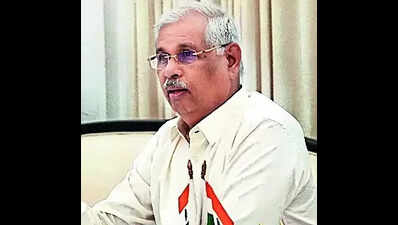Governor Urges VCs to Make a Fresh Start for Bihar’s Higher Education | Patna News – Times of India


Patna: Governor-cum-chancellor Rajendra Vishwanath Arlekar on Wednesday asked the vice-chancellors (VC) of the state universities as well as Central University of South Bihar “to make a new beginning by forgetting the past shortcomings” to give a new direction to the state’s higher education.
“There is an urgent need of writing a new chapter for Bihar and for this we will have to make a new beginning by forgetting our past shortcomings,” he said while inaugurating a daylong workshop on “leadership development of vice-chancellors” organized at Raj Bhavan here.
Asking the VCs to fix their responsibilities, Arlekar said that it is the duty of all to make concerted efforts for ensuring qualitative improvement of higher education in the state.
“It is the duty of all the academics to nurture the younger generation in such a way as to help India become a developed nation by 2047. Education will play a vital role in the fulfilment of this mission. It will be possible only through strong will power and sincere efforts,” he said, adding the VCs should always remember that they have been chosen by god for achieving this special mission of prime national importance.
An in-depth discussion was held by the VCs on various aspects of higher education, including governance and administrative issues, academic excellence, research and innovations at the workshop.
Prominent among those who participated in the deliberations of the workshop included National Book Trust chairman Milind Sudhakar Marathe, Bhartiya Bhasha Samiti chairman Chamu Krishna Shashtri, IIM-Ranchi’s director Dipak Kumar Srivastava, University Grants Commisison’s secretary Manish Joshi, All India Council for Technical Education’s vice-chairman Abhay Jere and the governor’s principal secretary, Robert L Chongthu.
We also published the following articles recently
Andhra Pradesh universities face significant leadership changes with mass resignations of V-Cs. Political interference sparks concerns over academic autonomy. The unprecedented move raises fears of universities being politicized and facing frequent leadership turnovers with new governments.















